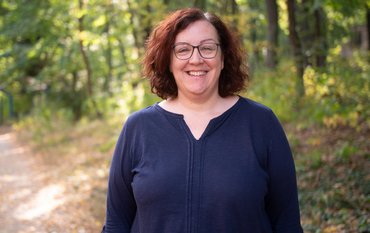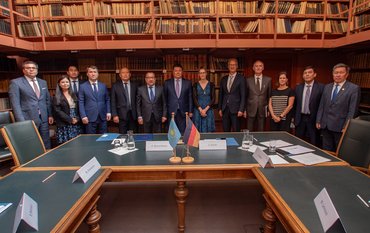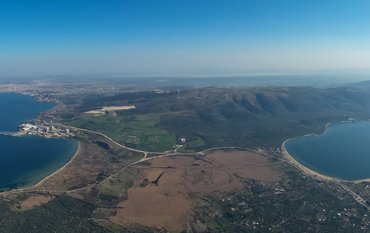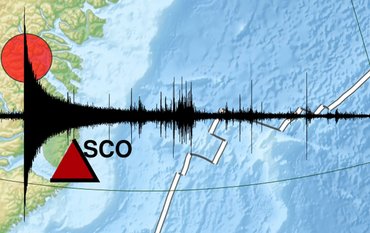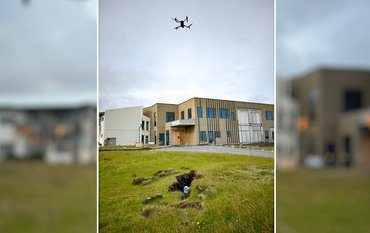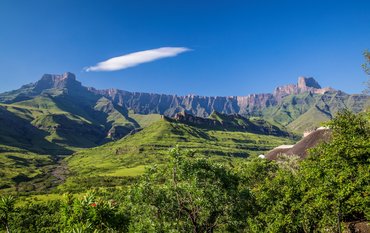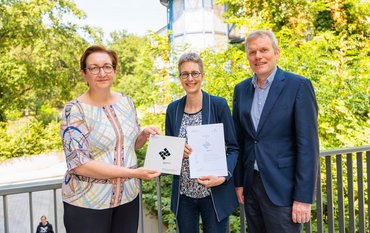Niels Hovius is acting Scientific Director of the Helmholtz Centre Potsdam - German Research Centre for Geosciences GFZ. This was decided by the GFZ’s Board of Trustees in its regular autumn meeting today, Friday, November 13. The 56-year-old Earth scientist from the Netherlands thus takes over the office of Reinhard Hüttl, who had been relieved of his position as Scientific Director at his own request until further notice. The GFZ’s Board of Trustees re-appointed in the same meeting the current Administrative Director of the GFZ, Stefan Schwartze, for a further period of five years.
Hovius joined the GFZ in 2012 from the British University of Cambridge and heads the Geomorphology Section. In a joint appointment he is Professor at the University of Potsdam. His work focuses on Earth surface dynamics, especially erosion processes and their impact on the Earth system. Niels Hovius studied physical geography and geology at the Rijks Universiteit Utrecht, Netherlands, and holds a doctorate from Oxford University, United Kingdom. He was a postdoc in Ireland and the USA, and a visiting professor in France, Norway and Switzerland. Looking forward to his new task, Hovius says: "In the coming time, the main focus will be on bringing the new research program ‚Changing Earth – Sustaining our Future' to life. Over the past few years, we at GFZ have worked together with colleagues from six other Helmholtz Centres to design this ambitious and unique programme. The specific implementation of the cross-centre research programme from January 2021 will be breaking new ground – mind, there’s nothing more appealing to geoscientists than exploring new paths".
"Changing Earth - Sustaining our Future“ brings together several thousand researchers from seven centers in the Helmholtz Research Field Earth and Environment. It comprises nine "Topics", each of which is worked on by at least two Helmholtz research centres. The GFZ has the leading role in two topics: "Restless Earth" and "Georesources". The Potsdam Center is also significantly involved in three other topics: "Atmosphere", "Ocean and Cryosphere" and "Future Landscapes". In addition, the GFZ contributes major scientific infrastructures, for example regional observatories, satellite missions or the earthquake monitoring network "GEOFON".



![[Translate to English:] [Translate to English:] Abror Gafurov von dem Schriftzug "Welcome to Azerbaijan" und den UN und COP Logos](/fileadmin/_processed_/2/5/csm_2024_11_Baku_COP29_Abror_Gafurov_1042faec82.jpeg)


![[Translate to English:] Martin Herold standing in front of the library on the Telegrafenberg](/fileadmin/_processed_/c/d/csm_Martin_Herold_d385ee4dd9.jpeg)
![[Translate to English:] Many people are listening to a presentation in the GFZ lecture hall.](/fileadmin/_processed_/c/a/csm_1_Bild1_hell_b9c0e9f5ed.jpeg)






![[Translate to English:] Both scientists sitting on stools in front of a wall of books in the Telegrafenberg library](/fileadmin/_processed_/6/6/csm_Buiter_Castell_DORA_4_e87cb1ea18.jpeg)
![[Translate to English:] Gruppenbild mit 4 Personen](/fileadmin/_processed_/8/d/csm_20241017_GFZ-Emmerman-Medal-005_web_reinhardtundsommer_21a414fa4a.jpeg)






![[Translate to English:] Ice landscape with five red tents](/fileadmin/_processed_/8/9/csm_Zeltlager_auf_dem_Eis_Urheberin_Jenine_McCutcheon_5ced2d523b.jpeg)


